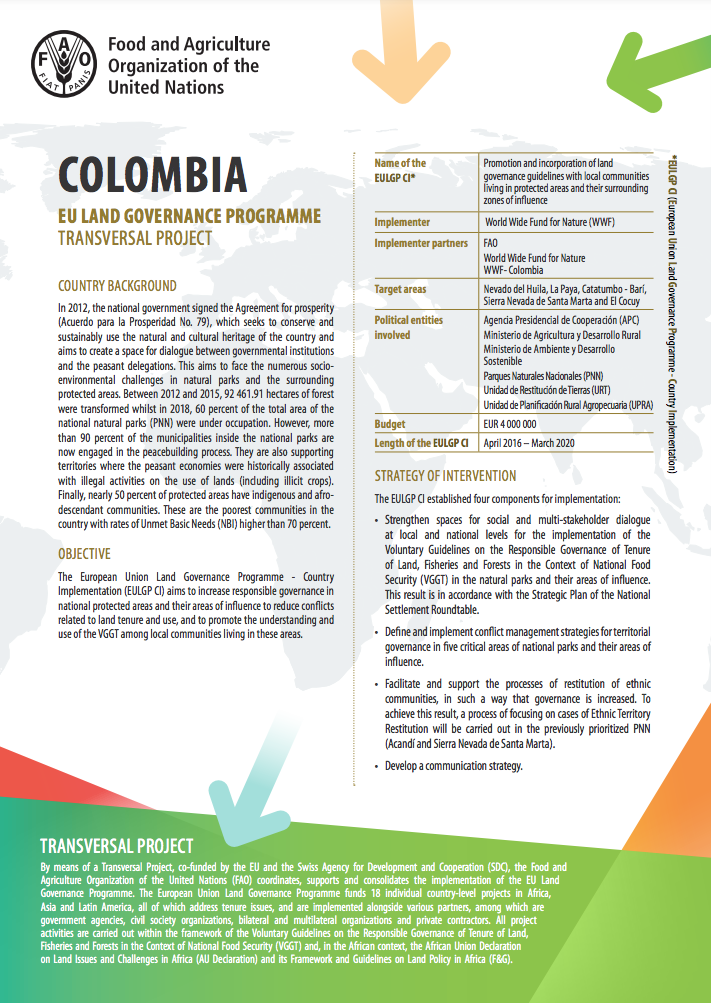The report "Towards an oil palm chain that contributes to the conservation of forests and the reduction of greenhouse gas emissions: Current status, opportunities with a value chain approach and action plan" presents an input for the development of an environmentally sustainable oil…
Livestock production is a fundamental source of income and greenhouse gas (GHG) emissions in Latin American countries. 20 percent of the region's emissions come from agriculture, 70 percent of which comes from livestock. There are several management and technology options with enteric…
The report "Towards a cocoa and chocolate chain free of deforestation and low in greenhouse gas emissions: Current status, opportunities with a value chain approach and plan of action" presents an input for the development of a cocoa chain free of deforestation and low in greenhouse…
The purpose of this brief is to reflect how stakeholders involved in different functional areas of Santiago de Cali’s food systems perceive food and nutrition security and sustainability in the city-region. Eleven interviews were conducted between June and August of 2019, with individuals…
Nine Latin American countries plan to use silvopastoral practices—incorporating trees into grazing lands—to mitigate climate change. However, the cumulative potential of scaling up silvopastoral systems at national levels is not well quantified. Here, we combined previously published tree…
There are few reports on dual-purpose cattle systems characterization in Latin America and Colombia based on
large datasets. This limits our understanding of their dynamics, and the establishment of public policies and
government programs to improve their productive performance,…
As the population increases, demand for food increases too, which has led to large-scale land conversion to improve livestock production in Colombia. Fulfilling these criteria of increasing demand in a sustainable way is a challenge and remote sensing data provides an accurate method to support…
n 2012, the National Government signed the Agreement for prosperity (Acuerdo para la Prosperidad No. 79), which seeks the conservation and sustainable use of the natural and cultural heritage of the country and aimed to create a space for dialogue between governmental institutions and the…
En 2012, el Gobierno nacional firmó el Acuerdo para la Prosperidad N.o 79, que tiene como objeto el conservar y utilizar de manera sostenible el patrimonio natural y cultural del país y crear un espacio de diálogo entre las instituciones gubernamentales y las delegaciones campesinas. Con ello se…
En 2012, le Gouvernement national a signé «l’accord de prospérité»(Acuerdo para la Prosperidad n°79), qui vise à conserver et à utiliser durablement le patrimoine naturel et culturel du pays et à créer un espace de dialogue entre les institutions gouvernementales et les délégations paysannes.…
A significant number of undocumented people-to-land relationships exist in many countries; they constitute an important barrier to economic development, especially that of rural areas. Although countries often have established procedures to register these relationships, typically, procedures…
Tierratorio de la paz-conflicto y el desacuerdo de paz
Flavio Bladimir Rodríguez Muñoz
Docente investigador Área conflicto y dinámica social
Director Programa de Geografía - Universidad Externado de Colombia
Andrés Felipe López Galvis…





